当前城市:淄博[切换]
- 手机雅思无忧

扫码登录
雅思考试主要是通过对考生听、说、读、写四个方面英语能力的考核,综合测评考生的英语沟通运用能力,实现“沟通为本”的考试理念。对于雅思考生来说,也有很多考试难点和政策盲区需要帮助解答。今天雅思无忧网小编准备了雅思口语范文 career 国外学习英语优点和缺点的英语作文,希望通过文章来解决雅思考生这方面的疑难问题,敬请关注。
英语范文:
Now , English is very important in the world,you can hear English ervrywhere.So it very useful in our life.I have been learning English for 3 years old,and I like English very much.
I can remember the English words very fast and I can also learn it easy, but I have a big problem.That is I forget the English quickly as soon as learn English quickly.
On the other hand,I can not lean English grammer very good. So, I think I should do more exercise and try my best to learn English well.
英语译文:
现在,英语在世界上非常重要,你在任何地方都能听到英语。所以它在我们的生活中非常有用。
我学英语已经三年了,我非常喜欢英语。我能很快记住英语单词,我也能很容易地学会。
但我有一个大问题。那就是我一学好英语就很快忘记了英语。另一方面,我不能很好地学习 英语语法 。所以,我认为我应该做更多的锻炼,尽我最大的努力学好英语。
雅思写作遇到法律犯罪类的题目该怎么解答,下面我给大家整理了该题目的解析大全,希望对你们有所帮助。
雅思写作典型法律犯罪题目讲解
A类的雅思大 作文 大致可以分为 教育 ,社会,科技,*政策,大众媒体,法律和犯罪这么六大类的题目,而其中学生们普遍反映最怵的,感觉最无从下手的题目当属法律与犯罪类型的题目。截至到08年12月22日为止,在1月12日,8月16日以及10月11日的考试均出现了法律,犯罪的题目。虽然说出题频率相对来说并不是非常的频繁,但是如果学生在备考中没有进行合理有效的对此类话题具有针对性的 总结 和复习的话,相信很难在写作中取得什么理想的分数(参加了这几次考试中的学员的分数普遍不是非常的理想)。而纵观市面上大量的雅思 写作指导 ,烤鸭备考秘笈这些针对不同层次,不同水平的袜握学生而编辑的雅思丛书中,我们也很难看到针对犯罪这类题目的一些教学及复习指导。在此篇论文中,我将就法律与犯罪所涉及的一些常见话题给大家从其内容,语言逐一进行分析,希望雅思教师们或者烤鸭们能够从中受益。
1. Can capital punishment (death penalty) ever be justified?
是否应该有死刑?
这个题目可以说是一谈到法律犯罪这一大类话题时,最会经常谈到的问题。对于大多数中国雅思考生,尤告返庆其是高中生,大学生,如果没有事先经过精心准备的话,对这个题目恐怕只能是傻眼了。关于这个话题,大致可以分成以下这几个分论点来展开:
Arguments against capital punishment
1. 死刑只是对罪犯的一种处罚,而并不能够将犯罪行为中受害者生命挽回,或者赔偿其所遭受的伤害
Capital punishment, which even though manages to bring the criminals to justice, could by no means compensate for physical, mental and psychological sufferings inflicted on victims, or in some extreme cases, bring back their lives.
2. 无论一个人犯多大的错误,其他人都无权剥夺其生命。 (人权)
It is entirely unjustified to deprive one of his/her rights to live regardless of how insanely severe and cruel the offenses he/she has committed are. (This subject matter has boiled to the controversial issue of human rights)
3. 死刑犯的尸体的处理(是否可以用于器官移植等等)将是一个非常具有争议的道德问题。
How the body of the deceased criminal is going to be disposed of (used for organ transplant, for instance) will be bound to raise grave both ethical and social implications.
Arguments for capital punishment
1. 如果死刑犯没有受到最为严厉的惩罚,那么这对受害者是不公平的。
It would be only fair for the victims if the criminals are subject to the greatest fear of all- death.
2. 如果死刑取世段消的话,那么很多潜在的罪犯就不会顾忌做出一些极为可怕的犯罪行为。
If capital punishment is ever to be done away with, the potential wrong-doers wouldn’t be deterred from committing staggeringly serious offenses among which serial murder proves particularly appalling.
2. Should criminals be sent to prisons or placed on education and job retraining?
类似的题目之前曾经考过,而在今年的1月12日再次出现。对于这个题目,很多学生会非常容易的陷入一个陷阱(pitfall),那就是认为说如果让学生接受教育或就业培训的话,那就是等同于有充分的人身自由了。其实不然,这里的教育或就业培训并不代表说把囚犯与普通的学生或接受培训者一样等同的对待,而是一样的要限制他们的自由,只不过说不像在监狱里整天关在牢房里无所事事,而是要接受教育和培训。关于这个题目,其实就变成了一个两者之间的对比,可以从以下几个方面进行论述。
1. 监狱同教育或就业培训相比有很强的阻吓作用,这样可以有效的抑制犯罪率的上升。
In stark contrast to placing criminals on educational courses or employment retraining, prisons appeared more effective in deterring potential, would-be wrongdoers from committing crimes, thus drastically decreasing the likelihood of rising crime rate.
2. 监狱更多的对罪犯来说是一种惩罚,因此能够避免再犯。
Being locked up behind the bars is a punitive measure imposed on criminals who are highly unlikely to turn into a recidivist in consideration of their fear of setting foot into jails ever again.
Arguments for education and job retraining
1. 罪犯在监狱里所被包围的是一群囚犯,这对罪犯的改造不是好的,反而是不好的影响。接受教育可以让罪犯在一个积极的环境里,真正的意识到对与错。
“Captivity of negativity” is a terminology intended to describe the destructive, rather than constructive impact on criminals who are locked up in prison, surrounded by people who probably have committed even more serious charges. Education serves to correct any misconception or eliminate twisted thoughts they have by immersing them in a positive environment.
2. 大多数罪犯往往是没有什么 文化 知识和生存技能,出狱后通常很难找到工作。教育和就业培训能够让他们在日后的生活中靠自己生存下去,而不至于因为没有收入来源而再次误入歧途。
A significant proportion of criminals are sadly illiterate without adequate fundamental knowledge and survival skills and it wouldn’t be easy for them to find a decent job after being released from the jail. With convenient access to education and job retraining, they are able to survive by themselves, greatly reducing the chance of becoming a recidivist in times when they are financially challenged.
3. Should individual choices interfere with the society that is based on rules and laws
这是今年10月11号的考题,这道题目主要讨论的核心是一种矛盾。那就是社会始终是以法规和法律为基础的,而有时社会的利益往往是与个人的选择相矛盾的。当这种矛盾发生时,应该将哪一个放在首位?为什么?这次考试结束后,我曾经与几个参与考试的学生讨论过,很多学生的反映就是这个题目其实并不难,但就是不知道怎样下手。还有某位学生直接就举了一个我们不能随便杀人,因为这是违反法律的事情的这样一个例子。其实,这个题目最为关键的是两点:怎样去法律的范围还有就是要找到一个合适法律与个人选择发生冲突的这么一个结合点。我对这个题目的段落结构以及内容的理解如下:
1.这种矛盾的产生主要是因为法律法规是从大众和国家的利益出发,而个人利益则绝大多数情况下是站在个人角度考虑问题的。一个有利于个人的问题如果给其他人造成了无谓的伤害,则是不应该允许的。
The conflict of public interest and personal interest accounts largely for the issue of the extent to which is the interference of personal choices justified with the society governed by rules and laws.
这里我们可以举一个例子,就知识产权(Intellectual Property Rights).很多人都会去网络上下载免费电影,音乐以及电子书。这样做的原因就是正版(authentic copy)相对中国消费者来说太贵。虽然说这看起来合情合理,大多数人都会从中受益,但是这也同时伤害到了娱乐明星们(celebrities)和唱片公司的利益,所以这时候应该以法律为根本,杜绝这种行为。
2.反过来说,我们不可否认个别特别情况下法律也应该给正当的个人选择让步
On the other hand, rules and laws should give in to personal choices in some special cases.
比如说,开车送心脏病突然发作的人赶往医院。尽管说途中司机可能会闯红灯(run red lights,会造成一定的交通混乱,甚至说还有发生交通事故的可能。但是这样一种行为我认为应该被理解(tolerated). 这是出于法律之外的,但是又合乎情理的。当然,这种法律的让步是有限的,很多时候确实很难判断。所以,无论是法律还是个人选择,最终都是从应该是整体的利益出发.
以上就是我对三个比较典型的法律犯罪类的题目的讲解,希望能够帮助到在紧张备考雅思的考生们。
雅思大作文解析及 范文 :社会法律规范是否该遵守
Task:Society is based on rules and laws. It could not function if individuals were free to do whatever they wanted. To what extent do you agree or disagree?
思路解析:
应该遵守:法律和法规是社会有序运行的前提,它们规范了人们的行为和思想,让人们的活动能限制在一个安全的,合法的范围。相反,一旦人们恣意妄为地来忽略这些法律的话,整个社会会陷入混乱。举例,如果交通法规不被遵守,则会出现大量的车祸。如果刑法不被遵守的话,则会出现大量的社会犯罪。
不应该遵守:对于那些不公正的法律,人们应该被授予足够的自由来进行对抗。举例,如果美国今天仍然保留着奴隶法案的话,则今天的美国黑人将处境悲惨,没有教育,医疗,工作和投票的权利。可以看到,这样的法律必将引发来自黑人的愤怒,反抗,甚至是战争。
参考范文:
Nowadays, there is an assertion that the freedom of citizens should be limited; otherwise it might harm the social laws and justice system, thus making our society unstable. Personally, this view is psychologically right, while it overlooks the importance of fighting against the unfair laws freely.
Firstly, there is no doubt that obeying social rules and laws is the fundamental obligation for all individuals, for the reason that they serve as a key function of ensuring our society running on the right track. Obviously, these regulations define the borders between the right and the wrong, the social ethics and day-to-day conduct standards, all of which can instruct and regulate citizens to act and think in a lawful, polite and safe way. Otherwise, the ignorance of these regulations, or so-called “an absolute freedom”, will trap our society into chaos and even malfunction. For example, if the traffic laws were disrespected, it is expected that all streets and highways will be full of congestions and car crashes caused by wrongdoings in driving like blind over speed or overtaking. Similarly, if the criminal law were absent, then there will be no concern of punishments for committing crimes. Consequently, illegal activities including thefts, robberies, arson, rapes, vandali* and murders will be overwhelming, which will not only place the poverties and lives of the public in the danger, but also destroy today’s civilization in a long term.
However, there is always a justification that people should be allowed to freely question and topple those unfair laws that are the barriers of democracy development. In history, the typical example is the slavery law in America that defined African-Americans as second-class citizens and deprived their rights of public education, health care and vote. If this evil law were just followed, instead of being eradicated through the pursuit of human freedom, we now can predict clearly that current the community of America would be still full of inequity, discrimination, and massive social disorder caused by conflicts between the black and white.
All in all, I agree that it is very necessary to limit the freedom of the public by confining their behaviors in the bounds of social regulation and laws, which is the pre-condition of social democracy and stability. However, when it comes to unjust laws, the public should have the freedom to eliminate them.
(392 words)
雅思写作重点题目总结:犯罪与法律类
1. 青少年犯罪
母题:In many parts of the world children and teenagers are committing more crimes. Why is this case happening? How should children or teenagers be punished? (100804)
提示:青少年犯罪juvenile delinquency 产生的原因及其解决 方法 。可从家庭、社会、媒体三个角度分析。
子题:很多年轻人有一种反社会行为,原因是什么,如何解决?犯罪是人类本性,还是可以预防的?
2. 犯罪预防
母题:Unlike in most other countries, police in the UK do not commonly carry guns. Some people think it leaves citizens unprotected. But others think it reduces the overall violence in our society. Discuss both sides of the view and give your opinion. (040320, 040619)
提示:这道题目当之无愧地成为母题,因为这道话题自从2021年9月起已经成为了雅思口语话题中的题目。11年8月20日,这道题目以变题的形式再一次出现在雅思写作中。
子题:是否应该严惩违反交规者?城市中采取预防犯罪的 措施 ,利大于弊吗?个人如果为所欲为,社会就无法运转,你同意吗?犯罪是世界问题,无法预防,你同意吗?
3. 罪犯惩处
母题:Sending criminals to prison is not the best method of dealing with them. Education and job training are better ways to help them. Do you agree or disagree? (050618, 080918)
提示:其实囚禁imprisonment和再教育都是一种让囚犯改造rehabilitate的方法。还有community service对于轻犯和初犯都是一种不错的惩处方式。
子题:监狱除了惩罚犯罪,还有什么功能?降低犯罪的最佳方法是延长监狱星期吗?刑满释放人员再犯罪率很高,为什么,如何解决?你认为罪犯应该送到监狱还是应该做一些社区工作或学习一些技能?
雅思写作高难词汇整理:法律专集
犯罪/违反法律:commit a crime , break the law,
law breaking, violate the law, against the law,
罪犯: criminal, law offender, law breaker,
law violator, villain, vermin, convict
守法: abide by the law, comply, compliance with the law,
conform. to the law, abidance by law, keep the law
滥用法律: abuse of law, stretch the law
监狱/关押:jail, prison, imprisonment, imprison, incarcerate, lock up
死刑: capital punishment, death penalty, death sentence
无期徒刑: life sentence, life prisonment, lifelong punishment
受害者: victim, casualty
无辜的: innocent, harmless
改造: rehabilitate
威慑力: deterrent
逮捕: arrest, apprehend
武装抢劫: armed robbery ; 纵火: arson;
敲诈勒索: blackmail; 贩* *: bootlegging;
非法闯入: break-in; 行贿受贿:bribery;
窃听: bug; 入室盗窃: burglary;
职业罪犯: career criminal; 虐待 儿童 : child abuse;
伪造: counterfeit; *犯:rapist;
赌博: gamble; 劫持: hijack;
集团犯罪:organized crime; 扒手: pickpocket;
色情商店: *oshop; 逃税: tax evasion;
仁慈的: lenient, merciful;
开明的: enlightened,
文明的: civilized,
仁慈的: humane
和谐的: harmonious
同情的的: sympathetic
残忍的: cruel, brutal, merciless, inhumane, dispiteous
雅思写作法律犯罪类题目解析相关 文章 :
1. 雅思写作题目类型及思路分析大盘点
2. 雅思写作:高能十大话题题库
3. 快来收藏学习!关于雅思作文的十大类话题大汇总
4. 英语写作:青少年犯罪类范文
5. 雅思大作文审题“三步法”
6. 雅思书信类写作范文赏析
7. 9类雅思写作常见错误解读 以错为鉴可涨分数
8. 50个交通类雅思写作短语汇总
9. 雅思大作文常见论点总结
10. 备考雅思写作必备的4类作文大纲
以上就是雅思无忧网为您准备的访问雅思无忧网(https://www.yasi.cn/),了解更多雅思考试新消息,新动态。
雅思培训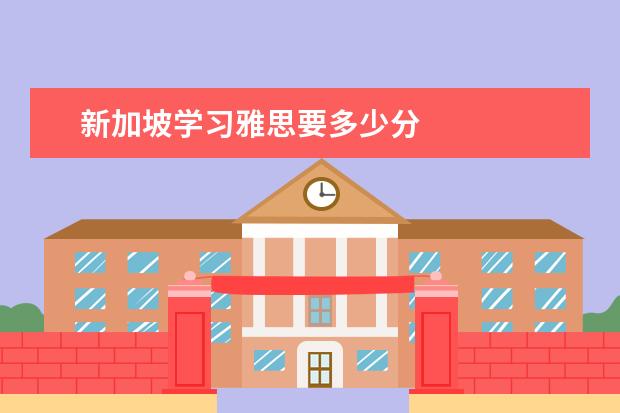 新加坡学习雅思要多少分
新加坡学习雅思要多少分
新加坡学习雅思要多少分新加坡的大学及职业机构对雅思成绩的要求可能有所不同,一般来说,如果您想申请新加
2026年01月15日 15:55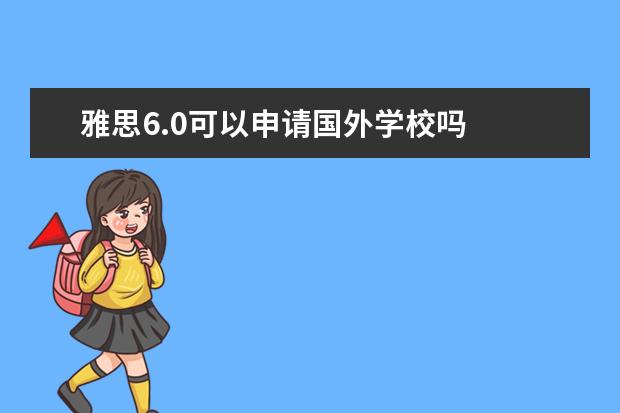 雅思6.0可以申请国外学校吗
雅思6.0可以申请国外学校吗
雅思6.0可以申请国外学校吗雅思6.0可以申请国外学校。以下是关于雅思6.0在申请国外学校时的具体说
2026年01月10日 13:01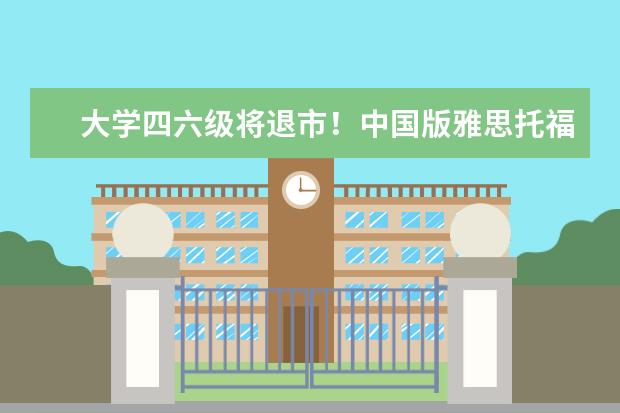 大学四六级将退市!中国版雅思托福能申请国外名校吗?
大学四六级将退市!中国版雅思托福能申请国外名校吗?
大学四六级将退市!中国版雅思托福能申请国外名校吗?目前中国版雅思托福尚不能直接申请国外名校,但未来存
2026年01月10日 22:22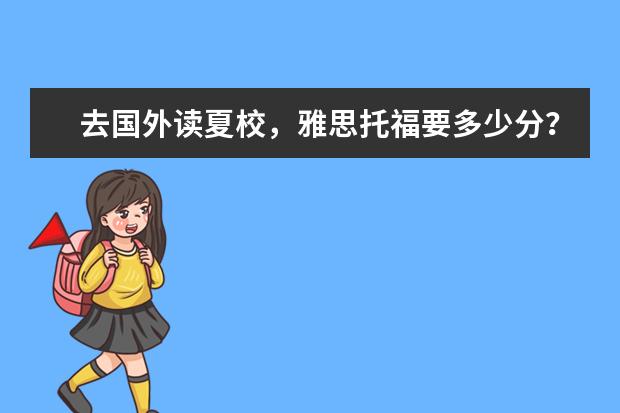 去国外读夏校,雅思托福要多少分?
去国外读夏校,雅思托福要多少分?
去国外读夏校,雅思托福要多少分?不同国家的夏校在语言要求上有所差异。斯坦福夏校的申请者需满足以下条件
2026年01月15日 21:49 去国外留学对雅思的要求是非常高的,雅思多少分可以上新西兰的梅西大学?
去国外留学对雅思的要求是非常高的,雅思多少分可以上新西兰的梅西大学?
去国外留学对雅思的要求是非常高的,雅思多少分可以上新西兰的梅西大学?新西兰的大学都是全英文授课,所以
2026年01月16日 06:46 雅思只有6.0可以申请国外排名靠前的大学吗?
雅思只有6.0可以申请国外排名靠前的大学吗?
雅思只有6.0可以申请国外排名靠前的大学吗?雅思6.0分可以申请部分国外排名靠前的大学,但具体能否申
2026年01月20日 18:13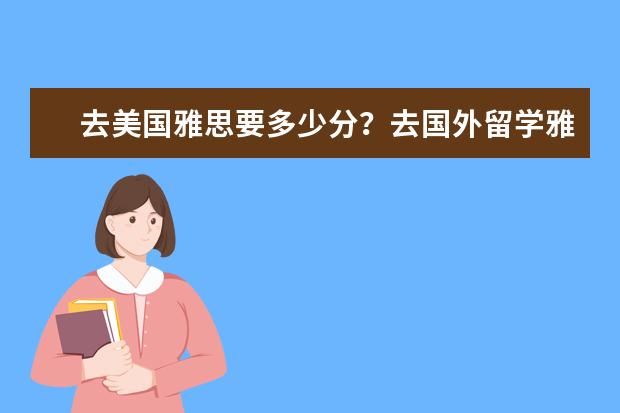 去美国雅思要多少分?去国外留学雅思有哪些要求?
去美国雅思要多少分?去国外留学雅思有哪些要求?
去美国雅思要多少分?去国外留学雅思有哪些要求?去美国留学,雅思成绩要求因学校和专业而异,大多数学校要
2026年02月01日 07:39 9月19日首都师范大学雅思口语考试安排 雅思UKVI中国考点-UKVI雅思考试特点全面分析及全国考点清单
9月19日首都师范大学雅思口语考试安排 雅思UKVI中国考点-UKVI雅思考试特点全面分析及全国考点清单
2023年9月19日首都师范大学雅思口语考试安排您好,我是专注留学考试规划和留学咨询的小钟老师。在追
2025年12月04日 02:16 4月26日太原雅思口语考试时间公布(山西太原市10月份雅思考试时间汇总)
4月26日太原雅思口语考试时间公布(山西太原市10月份雅思考试时间汇总)
2023年4月26日太原雅思口语考试时间公布您好,我是专注留学考试规划和留学咨询的小钟老师。在追寻留
2025年12月05日 11:57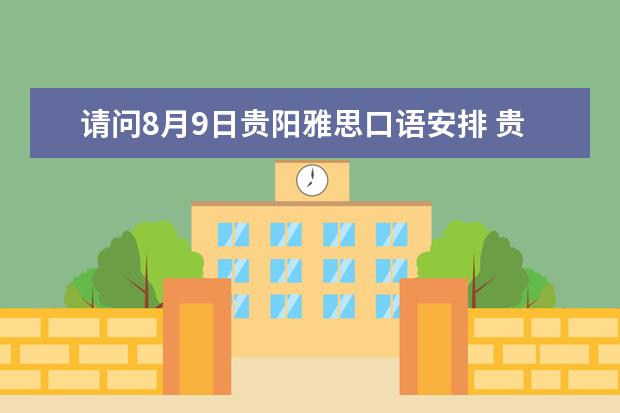 请问8月9日贵阳雅思口语安排 贵阳雅思报名日期
请问8月9日贵阳雅思口语安排 贵阳雅思报名日期
请问2023年8月9日贵阳雅思口语安排您好,我是专注留学考试规划和留学咨询的小钟老师。选择留学是人生
2025年12月06日 10:41